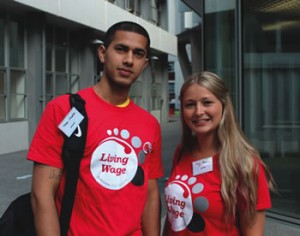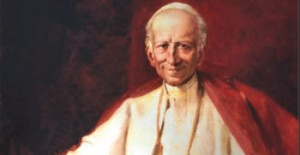John Ryall, National Secretary of the Service and Food workers Union NZ
MM How would you define the Living Wage? Is it the same as the ‘just wage’ in Catholic Social teaching?
JR The Living Wage is a wage which is enough for the worker and his/her family not just to survive but to be able to participate in society. This means they are not working hours that are so long to earn this wage that they cannot participate in their church, school, family or other community activities. It is based on the same thinking as the “just wage” in Catholic social teaching. This teaching accepts that the working person’s labour allows them to gain access to the “goods of the earth” and what allows them to enrich their own material, social, cultural and spiritual lives and those of their dependents. Failure to pay working people a just wage shuts them out of this endeavour.
MM Why (in broad terms) is the labour market failing to set a wage acceptable to both employers and workers?
JR The labour market is failing to set a wage acceptable to the majority of New Zealand workers and to some employers because the relationship between the two is not just unequal (as it admitted in the introduction to the Employment Relations Act) but the current employment legislation has failed to address this inequality. In 1991 the Catholic bishops put out a pastoral statement on the centenary of the publication of the encyclical Rerum Novarum in which they condemned the Employment Contracts Act because this legislation assumed “that the free pursuit of his or her interest by the private individual automatically leads to the public or common good of society”.
The current Employment Relations Act, while trying to change this philosophy by introducing more collective rights, is based on employers and workers setting wages in each workplace, when the growth of labour hire companies, contractors, sub-contractors has meant that the traditional workplace relationships have changed, and the real power for deciding the level of wages is determined not by the employer, but by the procurer of services, whether they be cleaning, security, health services, maintenance or other services. Unless the wage-setting system is based around the just wage, then wage rates will be determined by the workers’ and employers’ position in the food chain. If you are employed by a cleaning company that is in fierce competition with other companies to win contracts, then your chances of ever being employed on a just wage is non-existent, without either the client insisting that a just wage must be paid or legislation to ensure that a just wage be paid across the cleaning industry.
MM What would happen if the Government did not set a minimum wage?
JR If the Government did not set a minimum wage then wages would drop even further in parts of the labour market. This would not only have a depressing economic effect on those families who depend on the minimum wage (unless the workers worked even longer hours), but would also have a depressing effect on the whole of the economy as other companies lowered their wages to compete. The common good is the basis of the minimum wage, but the Minimum Wage Act has only assumed great importance in 2013 because, since the destruction of the industry award system in 1991 this is the only legislation that protects minimum pay rates.
MM Is it true that if the Govt raised the minimum wage any more, thousands of jobs would go?
JR Even conservative government departments such as Treasury do not accept this. They see that minimum wage increases can create jobs by pushing more money into circulation because those workers earning the minimum wage spend every last cent that they earn. The economic arguments are at what point does an increase in the minimum wage lead to businesses being unable to afford to employ more workers, or actually have to employ fewer workers. There is much debate on this point. The Singapore Government, for instance, over 20 years ago decided that they were no longer going to be the cheap labour zone of Asia and nearly doubled their minimum wage forcing employers to invest in technology, retraining and massive workforce productivity increases. While I am not advocating this for New Zealand, I think there are alternatives to what we are currently doing.
MM To what extent is the Living Wage an International Movement?
JR The Living Wage Movement started in the US city of Baltimore in 1993 and has spread to other cities in the US, Canada, the UK and now to New Zealand. It has become an international phenomenem because all these countries have moved down the track of removing some of the old legislative protections for workers and weakening unions. The Living Wage Movement has been based on churches and communities stepping up and saying that the level of wages and working poverty is an issue not just for weakened unions, but for all of us. The successes in London and other cities around the world is leading to the spread of this movement.

Isaac Chadda and Amy Hansen of the Service and Food Workers Union -- McGuiness Institute Blog
MM Are there any major employer groups committing to the Living Wage in NZ?
JR There are some employer groups that have signed up to the Living Wage Campaign. One of them was the TONZU food company in Auckland (recently featured in the NZ Herald), Wellington’s Thames Publishing and the Ka Pai retail food chain. The Auckland Council is doing a feasibility study on the living wage being applied to all their employees and all organisations that contract to them. While the Living Wage Movement is very new in this country, we believe that there will be growing interest by employers to sign up to the Living Wage brand, just as many have signed up to environmental and fair trade standards.
MM Once the principle is accepted, the crunch comes at setting the rate acceptable to all parties. In broad terms, how will this be achieved?
JR The Living Wage Movement last year commissioned a study by social and economic researchers on what level a living wage was in New Zealand. They published their report recently after doing some intensive work around New Zealand household expenditure and measuring the wage income that would be needed to sustain an average Kiwi family. The work they did was subject to review and forms the basis for us to determine what a New Zealand living wage is.
MM At a recent Symposium, the LWANZ set the living wage at $18.40 an hour. How broadly applicable is this rate, in your opinion?
JR The $18.40 an hour rate could be applied now and we have been talking to some public authorities, large corporate and ethical employers about implementing this rate for their own employees and the organisations that they contract to. The $18.40 an hour rate does take into account taxes and transfers and other costs and is under pressure because of very high housing costs in some geographical areas.
John Ryall is an old boy of St Patrick’s College Silverstream (1967-71), and received the Old Boy of the Year Award in 2011.


 Entries(RSS)
Entries(RSS)